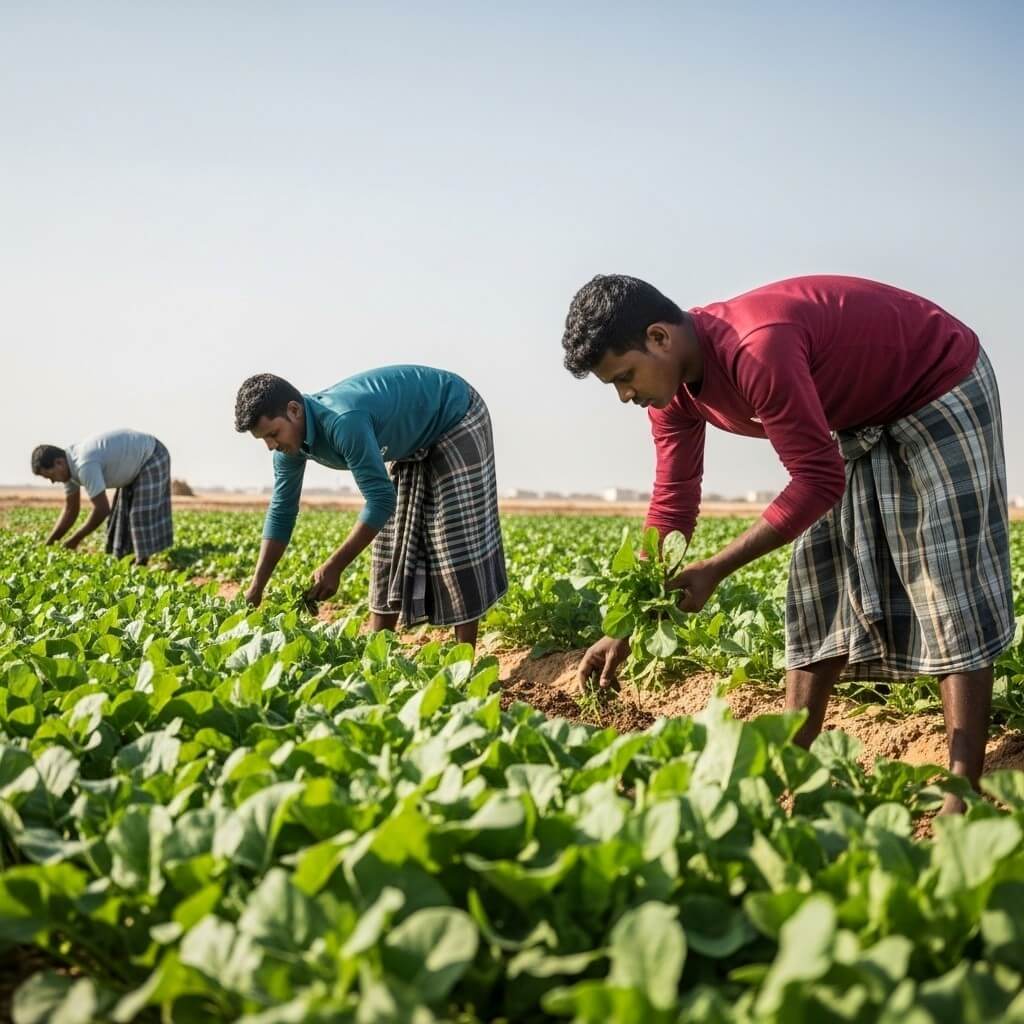Bangladeshi migrants are playing an indispensable role in revolutionizing Qatar’s agricultural landscape, transforming arid terrains into productive farms and significantly contributing to the nation’s ambitious food security goals. Their remarkable dedication and diverse expertise are not only bolstering Qatar’s self-sufficiency but also transferring invaluable skills that could benefit Bangladesh in facing its own climate challenges. Following a geopolitical shift in 2017, Qatar launched its National Food Security Strategy (QNFSS) to lessen its dependence on food imports. At the heart of this endeavor are thousands of Bangladeshi workers who have become instrumental in realizing this vision. They are not merely laborers but also enterprising individuals who lease land, applying a sophisticated blend of traditional wisdom and modern farming techniques. Their efforts have been pivotal in helping Qatar meet key targets in milk and poultry production, while substantially increasing self-sufficiency in fresh vegetables. Their innovations extend to cultivating a wide variety of produce and venturing into livestock, honey, and even experimental fish farming. Despite their crucial contributions, many Bangladeshi agricultural workers face considerable hardships, including demanding work schedules, modest wages, and, at times, restrictive living conditions often stemming from visa transfers. However, their unwavering perseverance shines through these challenges. They are diligently mastering advanced farming techniques such as hydroponics and aquaponics, sophisticated methods vital for agriculture in arid climates. This dedication ensures not only the success of Qatar’s agricultural projects but also a valuable transfer of cutting-edge knowledge back to their home country. The impact of their work extends far beyond Qatar’s borders. The skills and expertise gained by these Bangladeshi migrants in arid-climate farming, particularly in advanced techniques, are invaluable. As Bangladesh grapples with the escalating impacts of climate change, including water scarcity and saline intrusion affecting arable land, the knowledge acquired in Qatar’s innovative agricultural sector could offer critical solutions and contribute significantly to Bangladesh’s own food security and sustainable development initiatives. Looking ahead, the article highlights the potential for a government-to-government agreement between Qatar and Bangladesh. Such a partnership could ensure fairer treatment and better conditions for Bangladeshi workers, while simultaneously boosting Qatar’s agricultural productivity. Crucially, it would provide enhanced skill-building opportunities and economic advancement for Bangladeshi migrants, fostering a win-win scenario that cultivates a greener, more secure future for both nations.
Bangladeshi Migrants: Cultivating a Greener Future for Qatar and Beyond
58


